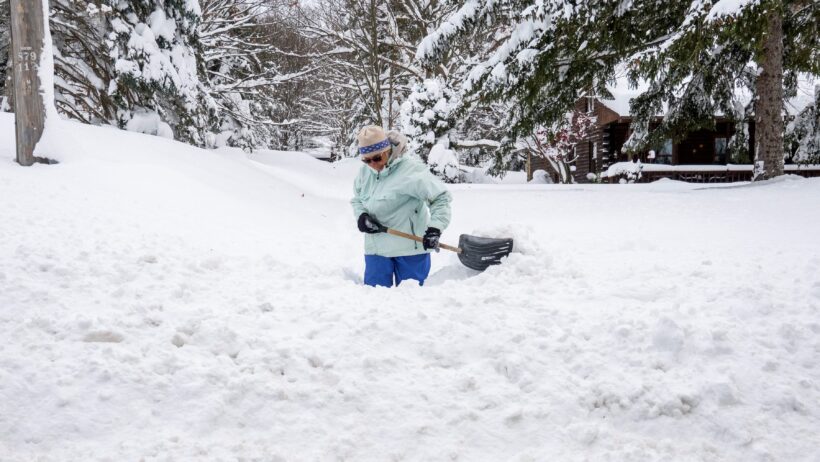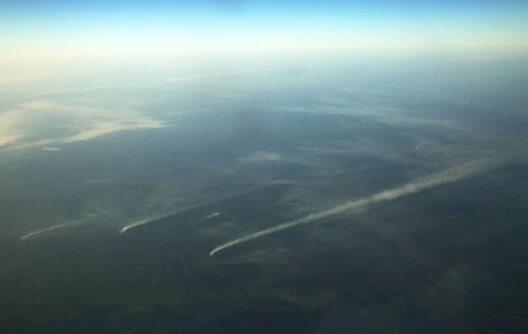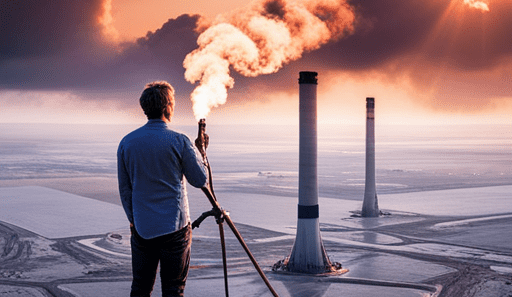As winter envelops much of the world in its icy grip, the phenomenon of colder weather raises peculiar questions among scientists, meteorologists, and the general populace alike. One of the most provocative queries that arise is whether such harsh winters correlate with the broader narrative of global warming. This inquiry may seem paradoxical at first blush. After all, how can the planet be warming if winters are becoming increasingly severe? The answer lies in understanding the intricate interplay between global climate change and regional weather patterns, a relationship that is both complex and multifaceted.
To comprehend the apparent contradiction posed by frigid winters amidst global warming, one must delve into the science of climate dynamics. The Earth’s climate system is an intricate web of atmospheric processes, ocean currents, and land-sea interactions. The influence of anthropogenic factors—such as greenhouse gas emissions—upon this system has led to significant alterations, resulting in shifts that can give rise to extreme weather events, including intense winter conditions.
At the core of this discussion is the cornerstone of climate science: the distinction between weather and climate. Weather refers to the short-term atmospheric conditions in a specific area, while climate denotes the long-term averages of these conditions over extended periods and vast regions. Consequently, a cold snap or an exceedingly snowy winter can be viewed as a weather aberration that exists within the larger framework of a warming planet.
One salient mechanism that contributes to the development of severe winter weather is the disruption of the polar vortex. The polar vortex is a large area of low pressure and cold air surrounding the Earth’s poles; it can become destabilized by a variety of factors, including the warming of the Arctic region. As the Arctic warms due to climate change, it can create a domino effect, causing the polar vortex to weaken or shift. This shift can result in pockets of frigid Arctic air descending into mid-latitudes, leading to harsh winter temperatures and unusual precipitation patterns.
Furthermore, the variability in oceanic temperatures also plays a crucial role in influencing winter weather. For instance, phenomena such as El Niño and La Niña can significantly impact atmospheric circulation and thus modify winter temperatures across continents. When such oceanic patterns intersect with the consequences of climate change, they can amplify or dampen seasonal conditions, leading to winter extremes that appear paradoxical in the context of a warming climate.
Another aspect to consider is the role of feedback loops in climate systems. Warming temperatures can lead to increased moisture in the atmosphere, which, paradoxically, may result in heavier snowfall during winter months. While warmer air holds more moisture, this does not negate the cold temperatures that can spawn significant snow events. The result is a landscape that experiences blizzards and snowstorms, even as global temperatures rise.
Despite the scientific explanations, the human experience of winter is profoundly visceral. Each winter season brings not just harsh cold but also an array of sensory experiences: the crunch of snow underfoot, the chill that bites at exposed skin, and the quiet that blankets a snow-draped landscape. These encounters with winter’s ferocity invoke a deep emotional response, prompting individuals and communities to reflect on the changing climate. This reflection often results in a duality of perception; while some may see the severe cold as evidence of natural variability, others view it as an alarming indication that climate change manifests in unexpected ways.
Moreover, cultural narratives surrounding winter weather contribute to the fascination with seasonal changes. Many regions celebrate winter through traditions that embrace snow, ice, and the challenges of the season. These customs, however, may soon contend with a transformation shaped by climate change. The blend of nostalgia for past winters and modern experiences of extreme weather creates a complex tapestry where individual memories and collective understandings coexist.
In light of these considerations, it becomes increasingly clear that colder winters are not a simple contradiction to the narrative of global warming. Instead, they serve as an urgent reminder of the nuanced consequences of climate change. As extreme weather becomes more frequent and unpredictable, societal responses are equally critical. Preparedness for severe cold snaps must evolve alongside strategies aimed at reducing greenhouse gas emissions and mitigating climate impacts.
This evolution of thought requires a multifaceted approach encompassing science, public policy, and community engagement. It calls for an enhancement of climate literacy among the populace, enabling individuals to discern the intricacies of weather patterns and climate change. Educational initiatives must emphasize the connection between local experiences of extreme weather and wider global phenomena, fostering a sense of agency among citizens. By understanding the implications of a warming planet, communities can work together to develop strategies that bolster resilience against both winter’s icy breath and the broader challenges posed by climate change.
In conclusion, winter’s warning echoes through the frigid air, challenging preconceived notions about the relationship between colder weather and global warming. It serves as a poignant reminder that the realities of climate change are not always straightforward but are characterized by complexity and variability. As we navigate through the icy landscapes of winter, let us be guided not by bewilderment but by a profound sense of awareness—a commitment to understanding the nuances of our changing climate and taking action to safeguard our planet for future generations.







